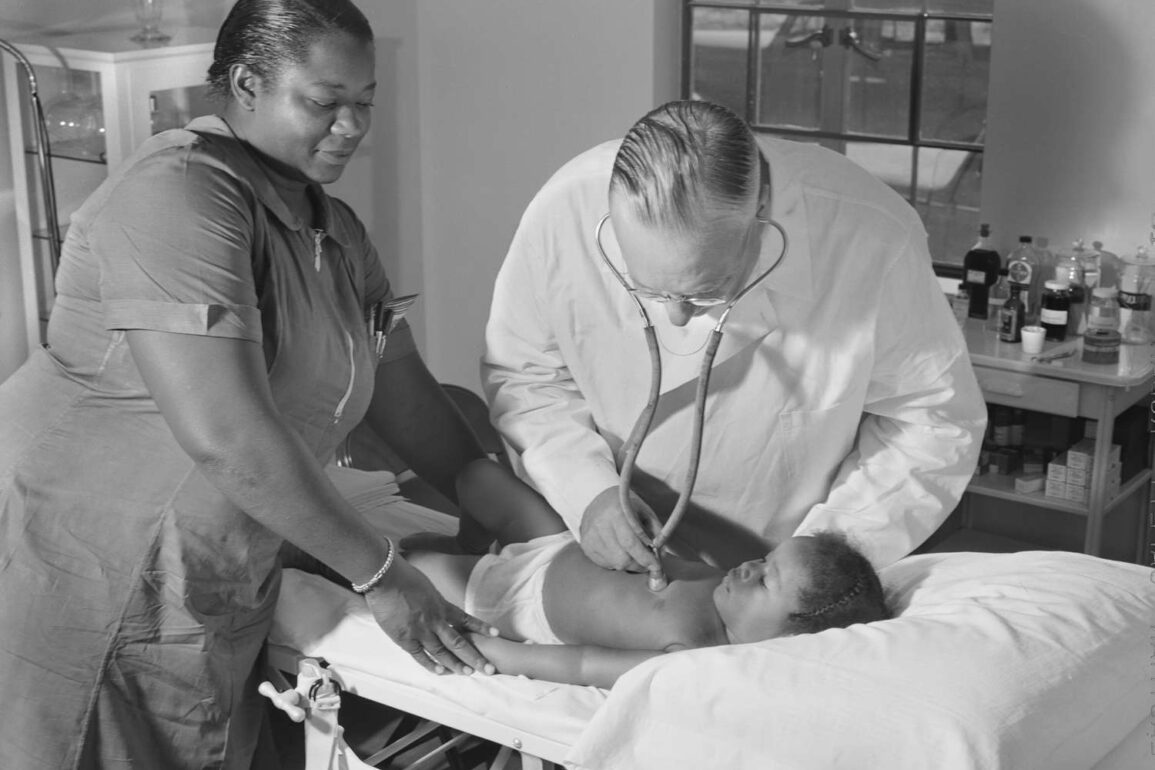
The racial disparities Black birthing parents face today have deep roots in American history. Some, if not all, of the disparities leave many of these women in poverty, with limited access to education, employment discrimination, and inadequate housing. But our country’s history of slavery, segregation, and systemic racism toward the Black community still shapes healthcare access, quality of care, and health outcomes. Here are five historical eras and policies in American history that continue to have poor lasting effects on Black maternal health, contribute to mistrust of the healthcare system, and fuel intergenerational trauma.
Slavery (1619-1865)
During slavery, Black women in America were subjected to reproductive exploitation. In the slave system, Black women were used to reproduce the next generation of enslaved labor, feed enslaved and white infants, test medicines, and perform risky surgeries related to obstetrics and gynecology.
Jim Crow Laws (1865-1968)
Jim Crow laws were a collection of state and local laws that legalized racial segregation. The laws denied Black women the right to vote, hold jobs, get an education, or other opportunities. This included unequal access to healthcare services for Black mothers. Segregated healthcare facilities often provided inferior care, and discriminatory practices limited Black women’s access to prenatal and maternity care.
The Eugenics Movement (1907-1978)
Black women have been subjected to unethical medical experimentation, including legalized forced sterilization during the eugenics movement. From 1929 to 1974, a disproportionate number of those who were targeted for forced or coerced sterilization were Black women. In fact, the practice grew so common among poor Black women in the South that it came to be known as a “Mississippi appendectomy.”
Social Security Act (1935)
During the Great Depression, many agricultural and domestic workers were Black women. This act excluded those types of workers from social insurance, limiting their access to healthcare services, including maternal care.
The Hyde Amendment (1980)
Historical and ongoing efforts to restrict reproductive rights, including access to contraception and abortion, disproportionately affect Black women. The Hyde Amendment is one of those efforts, prohibiting the use of federal funds for abortion services, except in cases of rape, incest, or endangerment to the life of the mother. It restricts Black women’s access to reproductive healthcare, increasing the likelihood of them facing poverty or unemployment after that.
Attempts to Course Correct
In recent decades, the federal government has sought to course correct, taking responsibility to address health disparities and promote the well-being of all citizens, including Black birthing people. Over time, our nation has realized that healthy parents mean reduced healthcare costs and increased productivity, contributing to a stronger, more resilient economy for all. Their well-being directly impacts the health of their families and communities. By ensuring that Black birthing people receive the care they need, we’re investing in the future of our nation.
Here are four examples of legislative and policy choices that have profoundly impacted the health of Black birthing people:
Civil Rights Act (1964)
While primarily focused on ending segregation and discrimination based on race, this act indirectly impacted healthcare access for Black mothers. Title VII of the act was amended to prohibit discrimination based on pregnancy, childbirth, or related medical conditions (the Pregnancy Discrimination Act).
Medicaid (1965)
Before Medicaid, many Black mothers lacked health insurance coverage due to systemic inequalities, financial constraints, and discriminatory healthcare practices. With its introduction, suddenly, millions of low-income Black mothers gained access to comprehensive healthcare coverage. This included access to essential maternal health services, such as screenings for gestational diabetes, high blood pressure, and other pregnancy-related conditions. By covering the costs of childbirth and postpartum care, Medicaid relieved the financial burden on Black mothers and ensured that they could receive adequate support throughout the entire maternity journey.
Healthy Start Program (1991)
This program aims to reduce infant mortality and improve perinatal outcomes in high-risk communities, including those with significant Black populations. Local projects provide prenatal and post-partum care, screening, referral to services for depression and interpersonal violence, outreach and case management, and public health services such as immunizations and health education.
Affordable Care Act (2010)
The Affordable Care Act (ACA) has played a crucial role in expanding access to affordable, high-quality maternal health care for Black women, thereby reducing racial disparities. The ACA focuses on improving maternal health outcomes through increased access to maternity and newborn care, preventative screenings, and other essential services. It expands access to health insurance coverage for millions of Americans, including many Black birthing people who were previously uninsured or underinsured. It even provided federal funding for home-visiting programs that support pregnant women and families with young children through the Maternal, Infant, and Early Childhood Home Visiting Program.
Influencing Federal Change
Even as our country champions progress, the stark reality remains: Black birthing people continue to endure unequal treatment compared to their white counterparts. Racial disparities permeate their every facet of life, from economic status to housing opportunities, societal treatment, and safety.
Implicit biases and a lack of culturally congruent care among healthcare providers cast a shadow over the quality of care received, perpetuating disparities in maternal mortality and morbidity. Stereotypes and prejudices seep into medical decision-making, eroding trust and widening the gap in healthcare outcomes. The fear of violence and interactions with law enforcement, coupled with disproportionate rates of incarceration and police violence, inflict further trauma on Black women. Even environmental injustices, from pollution to inadequate access to nutritious food and clean water, cast a long shadow over maternal health.
Historically, federal change has been influenced solely by collective action, spanning from legislative measures to investments in public health. As citizens, we have the power to shape government priorities, to hold our elected officials accountable, and to advocate for meaningful reform. Plus, by joining forces with advocacy organizations, we can amplify our voices and effect real change. Whether through voting, contacting representatives, or participating in public advocacy campaigns, each of us has a role to play in the fight to address racial disparities in Black maternal health.
Our time to do so is now because a groundbreaking piece of American legislation is currently being discussed. The Black Maternal Health Momnibus Act stands as a beacon of hope, mandating multi-agency efforts led by the Department of Health and Human Services to tackle social determinants of maternal health like childcare, housing, and food security. Among other things, the Act calls for the diversification and expansion of the maternal health workforce, includes initiatives to bolster access to maternity care, mandates programs to improve maternity care in prisons, and addresses climate change’s impact on maternal health.
The history of American society is woven with inequity, but it doesn’t have to remain this way. Every Black parent deserves more than just access. She deserves dignity, respect, and the assurance that her health matters. Their health is not merely a matter of public policy—it’s a fundamental human right.



